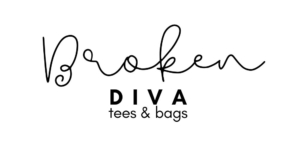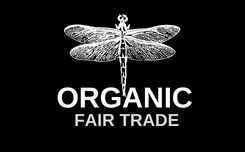Say yes to Slow Fashion!
The Slow Fashion concept promotes the transparency of production processes, introducing the traceability of garments, so that the consumer knows who, where and under what conditions the clothes he or she is wearing have been produced. The term Slow Fashion was coined in 2007 by Kate Fletcher, Professor of Sustainability, Design and Fashion at the Centre for Sustainable Fashion in London. Slow Fashion is the antithesis of what is known as ‘Fast Fashion’ .
Slow Fashion supports a philosophy of responsible clothing consumption, which seeks to raise awareness of the impact of clothing on the environment, the depletion of resources and the impact of the textile industry on society.
The materials promoted by Slow Fashion are noble products that do not pollute the environment and are biodegradable. The opposite of the products used in Fast Fashion.
FAST FASHION
> Excessive production and consumption
There was a time when fashion brands modeled their calendars on the natural rhythm of the seasons by releasing two collections a year, one fall-winter and one spring-summer. Today, most brands release new products every two weeks. The boutiques are open 7 days a week in London and day and night in Dubai. A frenetic race against time that pushes to produce more and more, faster and faster, but also to consume in an almost compulsive way, attracted by clothes whose price is sometimes lower than a sandwich!
> A retrograde system
This ultra-low cost obviously leads to production and working conditions that are devastating for both human rights and the environment. The challenges, such as reducing production times and costs to achieve ever lower selling prices, automatically lead to a kind of slavery where the human being is no longer taken into account but assimilated to a machine and only profitability counts. The same applies to the environment, since all efforts to produce using fewer natural resources are wiped out by mass overproduction without any respect for the environment or animals.
> Disposable fashion
The product itself is no longer considered since quantity automatically takes precedence over quality.
We therefore frequently find ourselves with shirts that pilling up, t-shirts that fade, jeans whose zip cracks without us having gained 3 kg, and when one of these items that we had immediately adopted gives up and we would like to buy it back, it is already no longer available! We buy without envy, to fill a void and our closets are on the verge of implosion! We obviously don’t wear a third of the clothes they contain and we even forget the existence of some of them.
> A uniform style
Immersed in a hype society where the diktat of trends reigns, many consumers buy to follow fashion, becoming at the same time the puppets of a capitalist society and cloning each other without really asserting their own identity. In short, a system that exhausts everyone and risks leading to general burn-out. So this is where “Slow Fashion” comes in, encouraging us to “slow down”, that is to say slow down the pace to take the opposite side of what has become normality and propose more respectful alternatives at all levels. It invites us to rethink an entire system of values and functioning in order to reconstruct another vision of fashion. Slow Fashion” reverses the power relationship between brands and consumers.
SLOW FASHION
> Small-scale production and consumption
There is a desire to return to basics and therefore to small-/medium-scale production and thoughtful, controlled consumption. We are re-appreciating our way of consuming to encourage relevant purchases and sustainable fashion. Today, people like to take their time before buying and consider that this increases their pleasure. We associate luxury and time with the creation of a product. People are eagerly awaiting their product. We think that small local designers and limited editions can stand out from the crowd. We consume less but better.
> A relationship based on trust
The aim is to build a relationship of trust between brand and consumer with total transparency and product traceability. The consumer is reassured by numerous labels such as Bios, Vegan, Made in Europe, etc. which guarantee a certain ethic on the working and production conditions as well as on the quality of the product. They seek to educate themselves and to understand where their product comes from, the stages of production and become aware of the materials of which it is made. Many brands offer clothing made from exclusively organic materials, such as organic cotton, bamboo fibres, Tencel and use non-toxic dyeing and garment treatment processes.
> Sustainable and committed fashion
To buy is to compromise in a certain way. Consumers regain their critical sense and become aware that their behaviour can have a sociological and economic impact. “We are what we wear”. They get involved, and they like being part of a community. A very strong sense of belonging, sharing and solidarity that can be in our society.
> A means of expression
Slow Fashion” stands against uniformity, the consumer regains awareness of his or her body, asserts his or her personality through clothing and seeks above all well-cut pieces that enhance it because, ¡ “Fashion goes out of fashion, style never”. Some brands refuse the pressure of “Fast Fashion“, take the time to look for inspiration, to create quality clothes and focus on timeless pieces that will last over time and that will not be forgotten the following season. Quality is more important than quantity, style is more important than trends.
> A return to traditional craftsmanship
Consumers are now looking for clothes that have value, a real story. We are advocating for the transmission of traditional know-how and techniques. We advocate a return to meticulous work, a desire to restore fashion style. We seek to consume locally and to highlight the creativity and strength of our designers. We educate ourselves for an enlightened consumption and we become aware that a quality garment that lasts has a cost. It also guarantees a quality manufacturing with better paid and considered employees, therefore more involved and motivated, and fulfillment.
COMMITMENTS
> Timeless collections Made in Europe
– Elegant models available throughout the year, punctuated by new pieces on a regular basis.
– Small-scale production, even very limited series for some prints.
> Transparency
– Quality fabrics including some organic cottons and linen
– A willingness to engage more and more in this way for an ethical and responsible fashion.
> A brand that advocates quality
– Attention to detail and special care at every step.
> Clothes that look like you
– The possibility to create different looks around a minimalist “capsule” collection and to buy less, but better.
– The possibility to create together personalized pieces to make you stand out.






